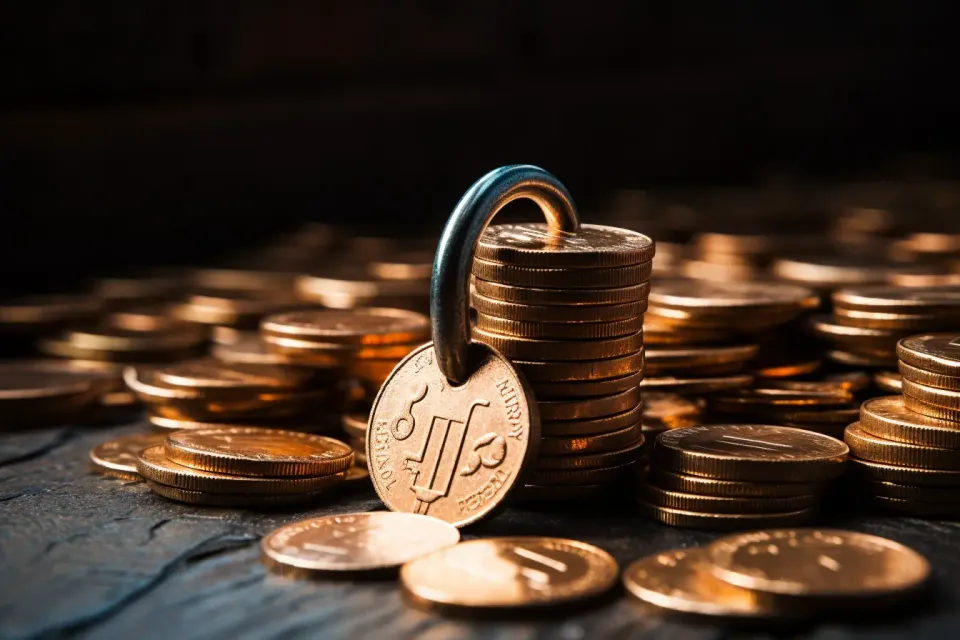Bitcoin Scams: How to Spot and Avoid Crypto Scams
Bitcoin Scams to Watch Out For
Key Takeaways
- Crypto scams come in many different forms, but with one purpose— stealing your hard-earned money.
- In an imposter scam, someone poses as a well-known figure in cryptocurrency to convince you to send them money.
- One of the first things you should look for when trying to spot a crypto scam project is a poorly written or non-existent whitepaper.
- Cryptocurrency blackmail and extortion scams are on the rise, as criminals target victims with threats of exposure or violence in exchange for digital currency.
What Are Crypto Scams?
Crypto scams come in many different forms, but with one purpose— stealing your hard-earned money. They are carefully crafted, and because they often show some facade of legitimacy, many crypto holders fall prey to them unwittingly. In this article, we will look at crypto fraud, some popular ways some crypto owners are defrauded of their cryptos, and what you can do to protect yourself from the never-relenting barrage of attacks from crypto scammers. Let’s get started.
Types of Cryptocurrency Scams
While hacking and scamming is an ever-innovative, we have highlighted some popular crypto scams you are likely to encounter.
Social Engineering Scams
Social engineering scams can be very convincing, so it's important to be aware of them. They are a type of cryptocurrency scam that relies on manipulation and deception to trick victims into giving up their money. These scams typically involve the fraudster posing as a trustworthy individual or organization to gain the victim's trust. They may then ask for personal information or financial assistance, promising to return the favor later. In reality, however, the victim will never see their money again.

Romance Scams
Amongst the listed crypto scams, one of the most common is the romance scam. In a romance scam, someone will create a fake online dating profile and build a relationship with their victim. Once they have gained their victim's trust, they will ask for money, promising to pay it back once they have access to their cryptocurrency. Unfortunately, once the money is sent, the scammer will disappear, leaving their victim with no money and no way to get in touch with them.
Imposter and Giveaway Scams
In an imposter scam, someone poses as a well-known figure to convince you to send them money. They may claim to be working on a new project or offer to double your investment if you send them funds. Giveaway scams are similar, except the fraudster promises to give away free cryptocurrency if you send them a small amount of currency first. These offers often look too good to be true, and that's because they are.
Phishing Scams
Phishing scams are cryptocurrency scams that try to trick victims into giving up their login information. Attackers will often create fake versions of websites or exchange platforms and send out emails or messages that appear to come from a legitimate site. The message will usually include a link to the fake site and may claim that there is an issue with the victim's account or that they must take action to avoid losing their funds. When victims click on the link, they will be taken to the fake site, where they will be prompted to enter their login details. Once the attacker has these details, they can access the victim's real account and steal their funds. Phishing scams can be tricky to spot, but there are some tell-tale signs to look out for, such as spelling mistakes in the message or an unexpected request to provide personal information.

Blackmail and Extortion Scams
Cryptocurrency blackmail and extortion scams are on the rise, as criminals target victims with threats of exposure or violence in exchange for digital currency. In many cases, the scammers will hack into their victim's email or social media account and then threaten to release embarrassing information or photos unless they are paid a ransom in cryptocurrency. They may also claim to have evidence of their victim's involvement in illegal activities and threaten to go to the authorities unless they are paid off. These scams can be extremely effective, as victims may be willing to pay anything to keep their secrets safe. In some cases, victims have even been blackmailed into giving up their entire life savings to avoid having their families or employers discover their alleged misdeeds.

Investment or Business Opportunity Scams
In this scam, scammers promise high returns with little or no risk. They may also claim that their investment is backed by assets or part of a larger financial scheme. Often, these scams require victims to pay upfront fees before they can start earning a return on their investment. However, once the fee is paid, the scammer disappears, leaving the victim with nothing.

Fraudulent Initial Coin Offerings (ICOs) & NFTs
In an ICO scam, a cybercriminal will create a fake cryptocurrency and then market it to investors as a new and innovative way to make money. They often promise high returns and use fake testimonials to convince people to invest.
Another type of scam that has become popular in recent months is the Non-Fungible Token (NFT) scam. In an NFT scam, a cybercriminal will create fake digital art or other items and then sell them as NFTs. They often use social media platforms to promote fake NFTs and trick people into buying them. Once again, the cybercriminal will make off with the money, and the buyers are left with nothing.
Cloud Mining Scams
A cloud mining scam is where someone promises to pay you a certain amount of cryptocurrency if you rent computing power through them. They usually do this by setting up a fake website that looks like a legitimate cloud mining service. Once they have your money, they will either not give you any cryptocurrency, or they will give you much less than they promised. Sometimes, people who fall for this scam also end up losing the funds when they first try to withdraw funds. In fact, this is essentially Ponzi scheme.
Crypto Coins Rug Pulls
A rug pull happens when token developers collect the money or simply cash out the project cryptocurrency and completely abandon the project which they never intended to develop in the first place.
Fake Crypto Apps
One of the most common scams is Fake Crypto Apps. These apps claim to be associated with a particular cryptocurrency but are designed to steal your private keys or otherwise defraud you. The best way to avoid these scams is to be careful about which apps you download and use and ensure that you only download apps from trusted sources.
Pump and Dump Schemes
A pump-and-dump scheme can be done by any person with decent amount of followers. This is what makes them dangerous. It happens when someone with a huge follower counts shills a coin and causes temporal price inflation, only to withdraw their positions and cause a dump on holders.
SIM-Swap Scams
In a SIM-swap scam, a fraudster will contact your cell phone carrier and trick them into transferring your phone number to a new SIM card they control. Once they have your phone number, they can reset the passwords on your various online accounts - including any exchanges where you hold cryptocurrency. They will then be able to empty your account and transfer the funds out to their wallet. This type of scam is relatively new but has already cost victims millions of dollars worth of cryptocurrency. To protect yourself from a SIM-swap scam, it is important to use strong two-factor authentication on all of your online accounts and never give your personal information - such as your Social Security number or date of birth - to anyone over the phone.
Fake Celebrity Endorsements
One of the latest trends is fake celebrity endorsements, popular on social media platforms like Twitter. Criminals create social media accounts that impersonate well-known figures in the world of cryptocurrencies, such as Elon Musk. They then use these fake accounts to promote bogus investment opportunities, promising huge returns for those who invest. Unfortunately, many people have been taken in by these scams and have lost large sums of money.

Fake Crypto Exchanges & Wallets
One common type of scam is the fake cryptocurrency exchange. These scam artists will set up a fake website that looks like a fair exchange, but they will use it to steal your personal information or cryptocurrency. Another type of scam is the fake cryptocurrency wallet. These wallets are designed to look like a legitimate way to store your cryptocurrency, but they are just a way for scammers to steal your private keys.
How to Spot Crypto & Bitcoin Scams
Guaranteed Returns Promises
Since volatility cannot be completely removed from the crypto, any offer of guaranteed profits should be treated with extreme skepticism. These Bitcoin investment scams add high-pressure tactics, such as a countdown timer or urgent language, to create a sense of urgency. Although a very fair project will still need some form of assurance, too much emphasis on returns is one proven method how to spot a Bitcoin scammer.
A Poor or Non-existent Whitepaper
One of the first things you should look for when trying to spot a crypto scam project is a poorly written or non-existent whitepaper. A whitepaper is important because it contains all the information about a project, including the team behind it, the problem it plans to solve, and how the token will be used on the platform. A lack of a whitepaper is a huge red flag, as it indicates that the team behind the project isn't serious about what they're doing. Additionally, you should be wary of any whitepapers filled with grammatical errors that don't make sense. If a whitepaper is hard to understand, it's likely because the team behind the project doesn't actually know what they're doing. This is especially important in avoiding ICO scams.
Excessive Marketing
If a company constantly tries to sell you on the idea of investing without giving any information about the product or service, that's a major warning sign. You should also be wary of companies that make grandiose claims about their investment potential without being able to back them up with hard data. Legitimate businesses with hard facts are often victims of changing market factors, let alone those without a well-defined plan.

Free Money
Remember the common saying, ' there is no free item, even in Freetown?’ It is no different with cryptocurrencies. There are ways to get free crypto through airdrops and contests, but even with this, an overwhelmingly large percentage is scams.
How to Protect Yourself From Cryptocurrency Scams
There are key things to watch out for regarding cryptocurrency and Bitcoin scams.
Protect Your Wallet
Irrespective of which crypto wallet type you use, there is important information you need to protect. For decentralized wallet users, your private key is important. Anyone requesting you send it is trying to defraud you. The centralized wallet equivalent of the private key is your login details.
Only Invest In Things You Understand
The promise of guaranteed returns might be hard to ignore, and being calculative beings, we humans believe a little risk might not hurt much. Our prejudice might have been valid if we were on utopian earth. The reality, frauds are toying with people’s emotions to scam them of their hard-earned money. If you don’t understand what you are investing in, no matter how lucrative it seems, it is better to sit it out. The fear of missing out (FOMO) has led to billions of losses, many of which result from a hazy understanding of what they are investing in.
Take Your Time
There are many ways that criminals can target unsuspecting investors, so it's important to be vigilant and take your time with any new investment. Don't rush into any investment without doing your research first, and don’t blame yourself for missing out on early gains.
Be Wary Of Social Media Adverts
Be wary of any social media advert that promises huge returns on investment. People selling alphas might be paid to do it or might be doing it to close their positions for a profit. Social media can be a blessing in finding opportunities but should not replace due diligence.
Do Your Research
Don’t FOMO in any cryptocurrency project. Do your research well before committing money. If you don’t have the time to go through the project’s whitepapers or check their smart contract, you can read audit reports from blockchain security companies.
Ignore Cold Calls
A scammer may contact you out of the blue and try to convince you to invest in a new cryptocurrency or ICO. They may claim to have inside information about the project or offer you a free consultation, and often, they may even threaten you if you don't comply. Whatever the case, it's important to remember that you should never give in to pressure like this. If someone calls you out of the blue and tries to push you into investing in something, it's a scam. Hang up the phone and block their number. Don't engage with them in any way. If you do, you're putting yourself at risk of losing money to a scammer.
Only Download Apps From Official Platforms
When you download an app from an unofficial platform, you risk downloading malware or a fake app that will steal your information. By contrast, official platforms such as the App Store and Google Play are carefully curated and only allow safe and trustworthy apps to be listed.
Is It Too Good to Be True
One of the most common types of cryptocurrency scams is known as a "Ponzi scheme." In a Ponzi scheme, investors are promised absurdly high returns in a short period, with the early investors being paid off with the money of later investors. Unfortunately, these schemes eventually collapse, leaving those who invested near the end out of luck. Another popular scam is known as an "exit scam." In an exit scam, a fraudulent cryptocurrency exchange or investment platform will suddenly close down and disappear, taking the customer's money. Either way, if the opportunity is to god to be true, it probably is.
What To Do If You Fall Victim to a Crypto Or Bitcoin Scam
If you've been scammed out of your hard-earned money in a cryptocurrency or Bitcoin scam, don't despair. Although it can be difficult to get your money back, you can do a few things to recover your losses.
First, if you have proof of the scam, such as emails, text messages, or other documentation, gather this together and contact your local police department. They may be able to help you track down the perpetrators and get your money back. Your centralized exchange can also come in handy if need be.
How to Report Cryptocurrency Scams
If you've been the victim of cryptocurrency fraud, there are a few things you can do to report it and try to get your money back. First, you should contact the customer support team of the exchange where you lost your money. They may be able to help you recover your funds. You can also file a complaint with the local Trade Commission or the Consumer Financial Protection Bureau.
How to Get Money Back from Crypto Scams
Cryptocurrency transactions are not reversible, so getting a refund will be quite challenging if scammed. A way you can attempt it is to contact your exchange if there is anything that can be done and if they can take down the scammer to prevent them from harming another person.
The Bottom Line
While there are many benefits to investing in cryptocurrency, it's important to be aware of the risks involved. Cryptocurrency scams are becoming more and more common, and crypto scammers are becoming more creative in their approaches, so it's important to do your research and only invest in reputable projects. Don’t forget to take your time with any project and safeguard your private keys/login information at all costs.
FAQ
What Are Common Bitcoin Scams?
There are a few key ways scammers will try to defraud you of your hard-earned Bitcoin, so it’s important to be aware of them. One common scam is a phishing attack, where scammers send you an email or message that looks like it’s from a legitimate website or service. The message will usually contain a link that leads to a fake website that looks identical to the real thing. Once you enter your login details on the fake site, the scammers will access your account and can steal your Bitcoin. Usually, these scammers have a Bitcoin scammer list and throw all their eggs at the wall, hoping one sticks.
How Do I Avoid Getting Scammed With Bitcoin?
There are different ways to protect yourself and your Bitcoins, but the best way to avoid getting scammed with Bitcoin is to avoid exposing your private keys and passwords, no matter what.
What Are the Most Dangerous Bitcoin and Cryptocurrency Scams?
One of the most dangerous cryptocurrency scams is the Ponzi scheme. This is where scammers promise investors high returns quickly, but instead of investing the money, they simply use new investor deposits to pay out older investors. Older investors tend to trust the system after the first payout and invest much more, only to lose it all.
Can You Get Scammed If Someone Sends You Bitcoin?
No, you can’t. The only issue arises when someone actually gains access to your wallet, which doesn’t happen via sending you Bitcoin. Therefore, no matter who sends you what, you’re protected as long as you fully control the private keys from your Bitcoin wallet.
What Should I Do If I Receive a Blackmail Email About My Bitcoin Wallet?
If you receive a blackmail email threatening to release private information unless you pay a ransom in Bitcoin, there are a few important things to remember. First, do not panic. Keep a cool head and explore your available options. Next, don’t reply to the email. If you do, it will further prove to them that your email is active. Finally, reach out to the police department or/and a cybersecurity expert to discuss your next steps.
Is Bitcoin a Scam?
Bitcoin is not a scam; it’s a paradigm shift in world of finance changing the way people think of money.
Is Cryptocurrency a Scam?
No. Most cryptocurrencies are not a scam, but you need to be careful before buying a new, unproven cryptocurrency without any use case because it is easy to create one, and scammers won’t hold back.
How Do I Protect My Bitcoin?
There are different ways to protect your Bitcoin, from keeping your private keys to using cold wallets.
*This communication is intended as strictly informational, and nothing herein constitutes an offer or a recommendation to buy, sell, or retain any specific product, security or investment, or to utilise or refrain from utilising any particular service. The use of the products and services referred to herein may be subject to certain limitations in specific jurisdictions. This communication does not constitute and shall under no circumstances be deemed to constitute investment advice. This communication is not intended to constitute a public offering of securities within the meaning of any applicable legislation.




